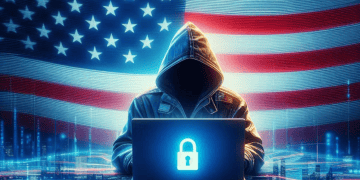The recent repeal of the Chevron Doctrine is set to create significant implications for U.S. cybersecurity efforts. The Supreme Court’s decision to revisit and ultimately revoke the Chevron Doctrine, which has been a cornerstone of administrative law for nearly four decades, has introduced a new layer of complexity to the regulatory landscape.
The Chevron Doctrine, established by the 1984 Supreme Court case Chevron U.S.A., Inc. v. Natural Resources Defense Council, Inc., required courts to defer to federal agencies’ interpretation of ambiguous statutes as long as their interpretation was reasonable. This principle has been pivotal in shaping the authority and autonomy of federal agencies, including those overseeing cybersecurity.
With the repeal of this doctrine, the authority of agencies like the Cybersecurity and Infrastructure Security Agency (CISA) and the Federal Trade Commission (FTC) could be significantly affected. These agencies, which play critical roles in developing and enforcing cybersecurity policies and regulations, may face increased legal challenges and a heightened burden of proof when interpreting and implementing statutes.
Industry experts express concern that the absence of Chevron deference could lead to a surge in litigation against regulatory actions, potentially stalling important cybersecurity initiatives. Companies might challenge agency regulations more frequently, leading to prolonged legal battles and uncertainty in the regulatory environment. This scenario could hinder timely responses to emerging cyber threats and slow down the development of robust cybersecurity frameworks.
Furthermore, the repeal of the Chevron Doctrine might necessitate a legislative overhaul to clarify statutory mandates and reduce ambiguity. Lawmakers could be pressured to craft more precise and detailed cybersecurity laws, ensuring that agencies have clear guidance on the scope and application of their regulatory powers.
As the cybersecurity landscape continues to evolve with increasing sophistication of cyber threats, the need for a stable and predictable regulatory environment becomes even more crucial. Stakeholders, including federal agencies, private sector companies, and cybersecurity professionals, will need to navigate this new legal terrain carefully to ensure the continued protection of critical infrastructure and sensitive information.
The implications of the Chevron Doctrine repeal are still unfolding, and its impact on U.S. cybersecurity efforts will likely become clearer in the coming months. In the meantime, a collaborative approach among all stakeholders will be essential to address the challenges and maintain the integrity of the nation’s cybersecurity posture.
Get the latest supply chain report news at The Supply Chain Report. Learn more about international trade with tools from ADAMftd.com.
#ChevronDoctrine #CybersecurityChallenges #USTechLaw #RegulatoryImpact #CISA #FTC #LegalReform #CyberThreats #SupremeCourtDecision #AdministrativeLaw #CyberPolicy #RegulatoryOverhaul #LegalChallenges #TechRegulations #CyberDefense #FederalAgencies #CybersecurityLaws #LegalLandscape #AgencyAuthority #SecurityFrameworks















